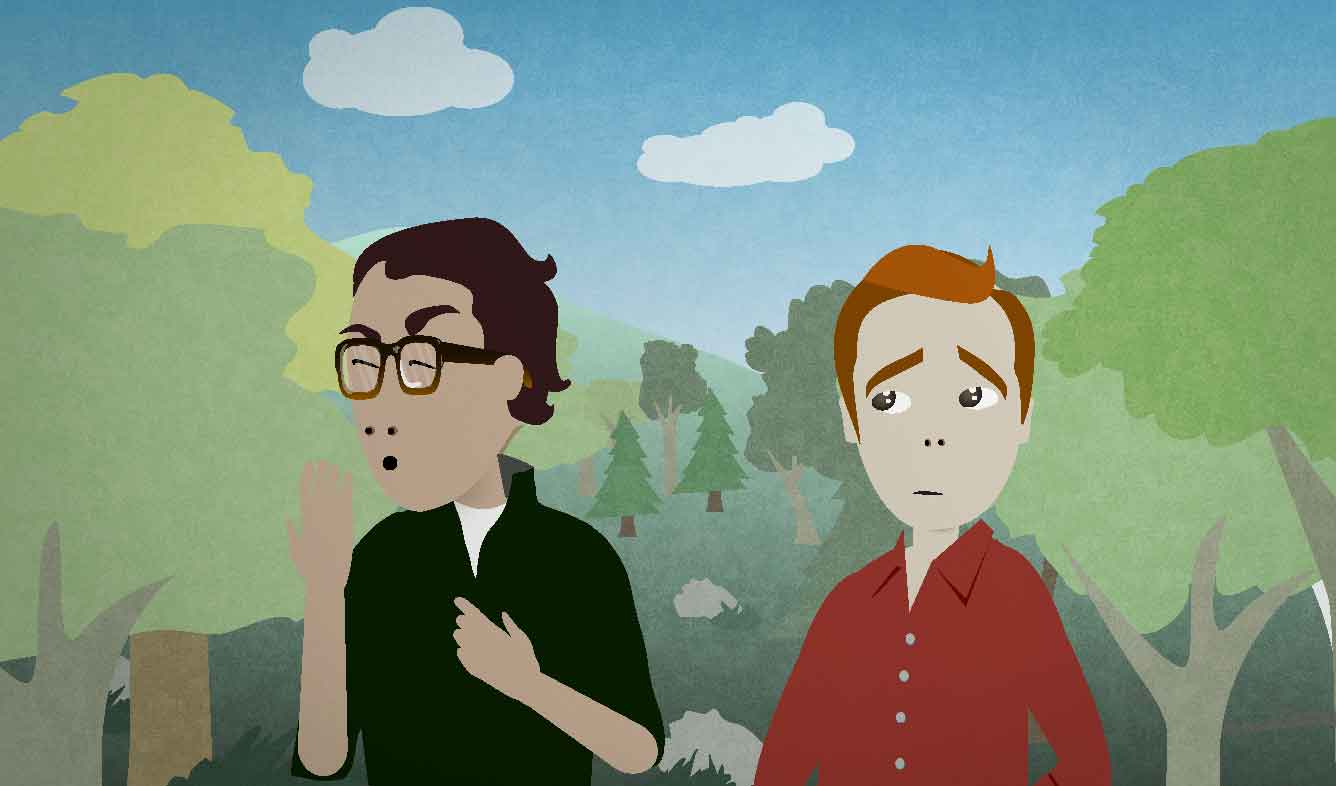“Do you have allergies or something?”
You go outside with your friend in the spring, and he starts sneezing a lot. You think that it might be because of pollen, so you ask him this question.
Do you have allergies or something?
Want Video and Sound? Follow us on YouTube

have allergies
An "allergy" is your body's negative reaction to some kind of substance, like pollen, dust, mold, or certain kinds of food. When you have contact with the substance that you are allergic to, you start to feel symptoms like sneezing, headaches, swelling, itchiness, and so on.
If you say someone "has allergies", it usually means that they're allergic to pollen. If the allergy is something else, you say that they "have a ___ allergy" or they "are allergic to ___". For example:
Martin has a peanut allergy.
I'm allergic to cats.
Are you allergic to shellfish?
or something
You use the phrase "or something" at the end of a sentence when you're not sure about what you're saying. Saying "or something" makes it sound like you don't mind if your statement is wrong or if the other person disagrees. For example, when your friend is coughing a lot, you can say:
Wow, you should go to the doctor or something.
By adding "or something" to the end, you show that you don't mind if your friend doesn't take your advice. If you were really serious that you want her to go to the doctor, you would call her by name and say:
Ashley, you should go to the doctor.
Another example – you see a big group of people gathered on a nearby street. You ask:
What's going on here – a parade or something?
You say "or something" because it's not really important to you whether it's a parade or not.
